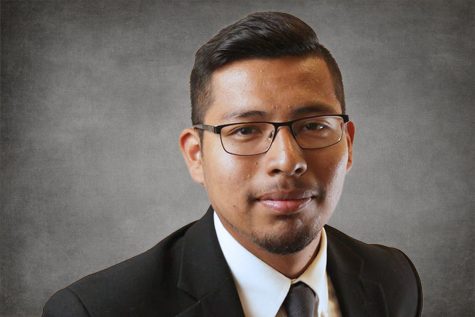Knox leaves legacy of community building
Aug 23, 2017
RICHMOND — Former Assembly Member John “Jack” T. Knox’s life and commitment to West Contra Costa County were honored at the Miller/Knox Regional Shoreline, named after him and U.S Congress member George Miller, during a memorial service on Sunday in Point Richmond, California.
Knox died at age 92 on April 4 in the Kaiser Hospital in Richmond.
Contra Costa College’s founding member Jean Knox said it is important to remember her husband’s legacy because what he did worked.
Jean Knox said John Knox was able to get respect of people from both political branches because of his ability to communicate well with people from all walks of life.
Miller, Knox’s mentor, said that when people of Richmond wanted access to Keller Beach in Pt. Richmond, Knox legislated for access for all people to all beaches in California.
Miller said Knox’s public service was a gift to other people because of his passion for helping make local things better. “That is just how John was,” he said.
From 1960 to 1977, Knox represented the Contra Costa County District 11 as a state legislator in the California Assembly and served as the speaker from 1977 to 1980.
Former Speaker of the Assembly WIllie L. Brown Jr. said, “There has never been, and never will be, another law maker like, “Jack,” Knox. He was incredible.”
Brown Jr., former mayor of San Francisco, said John fought hard for local government and made it work.
Prior to the event, former Contra Costa Community College chancellor Helen Benjamin said it is important to remember that Knox was supportive to local students and contributed to the development of Contra Costa College.
Jean Knox said at first CCC was a, “vocational oasis,” that gave the community access to affordable higher education.
But even after 30 years after its opening she said there was still no Applied Arts Building or John and Jean Knox Center for the Performing Arts on campus.
Jean Knox, who was as an English professor at CCC, said the district Governing Board was mostly concerned about getting funding for the AA Building. But a faculty committee and various community members were advocating for the district to build a performing arts center.
She said there was not much enthusiasm to fund a performing arts center among the Governing Board members at the time, but John Knox pressured them to fund the performing arts.
To recognize Knox’s efforts in securing the funding a proposal to change the name of the performing arts center to John and Jean Knox Center for Performing Arts was sent out to faculty in 2002.
Former art department chairperson John Diestler said the unofficial policy of the college was if a building was to be named after someone it should be because that person died.
Whenever someone wanted to name a building after a living person the proposal was always denied, Diestler said.
He said for the college to name it after John and Jean Knox, a founder of the college and politician who were both still alive at the time, shows how much the community appreciates their contributions.
Jean Knox invested her life to the college, and John was always a supportive figure because he knew the law and was an assemblyman Diestler said.
He said John Knox was a, “friend of the college.” He said John interacted with students first hand.
Journalism department Chairperson Paul DeBolt said Knox used to invite The Advocate staff to his office located in Sacramento every June to get a better understanding of state politics.
DeBolt said they were able to attended former Gov. Ronald Reagan’s press conference in one of these trips in 1974.
He said Knox was able to convince Reagan to meet with the visiting CCC journalism students.
“He was a sincere guy with a great sense of humor,” DeBolt said.
Knox was born on September 30, 1924 in Reno, Nevada. He moved to California in 1929.
At 25 years old he earned a bachelors of art degree from Occidental College in Los Angeles in 1949.
Four years later he earned a law degree from Hasting College of Law in San Francisco.
He set up a law firm in Richmond soon after where he worked until 1960 when he was elected into the California Assembly.
As an assemblyman he was able to pass memorable acts like the California Environmental Quality Act, which requires state and local agencies to identify the environmental impacts of certain construction projects cause and reduce any negative effect on the ecosystem.
Apart from many environmental acts, Knox created the San Francisco Bay Conservation and Development Commission signed by Reagan.
After his term, instead of moving to Los Angeles Knox created a successful San Francisco branch of the Los Angeles law firm, “Nossaman, Krueger and Marsh,” (now known as Nossaman) and retired in 2008.
Knox died of old age. He is survived by Jean, daughters, Mary and Charlotte, son, John Jr, and seven grandchildren.


